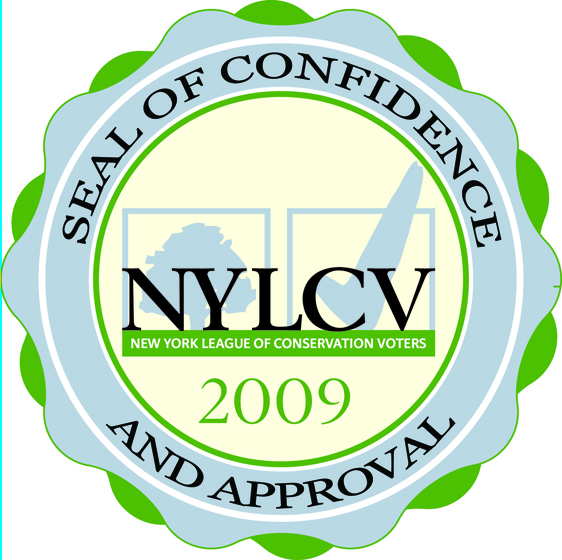NYLCV Asks Pols About Smart Growth and Complete Streets, Not Transit

The New York League of Conservation Voters just released the questionnaire that will be guiding their endorsements for state legislators in 2010. NYLCV is one of only two organizations in the state that endorses candidates based on their support for sustainable transportation. While the organization will be judging candidates on their support for important transportation reforms like complete streets and smart growth policies, they aren’t asking about urban transit issues like MTA funding or bus lane cameras.
The NYLCV stands out among environmental organizations for its focus on electoral politics. The questionnaire is a central piece of the group’s endorsement process; even the strongest environmentalists are ineligible for their support without filling one out.
Transportation and planning issues make up a major part of the questionnaire, along with clean energy and water quality. Top priorities include complete streets legislation, which would require streets to be designed for cyclists and pedestrians, and the Smart Growth Public Infrastructure Policy Act, which would require state agencies to prioritize infrastructure spending in areas where infrastructure already exists, helping to curb suburban sprawl.
"Those are our two items we thought had some momentum this year, items that could get passed in this complicated budget environment," said NYLCV’s Dan Hendrick. According to Hendrick, these priorities were worked out after conversations with transportation advocates like Transportation Alternatives, the Tri-State Transportation Campaign, and the Empire State Transportation Alliance. (Unlike NYLCV, the transportation groups don’t have the legal ability to endorse candidates.)
Absent, however, are two issues critical to making transit in New York City an attractive transportation option instead of cars: MTA funding and camera enforcement for bus lanes. NYLCV has made both issues high priorities in recent years. Congestion pricing was one of its top issues in 2008, and the group has asked about bus lane cameras on past questionnaires.
The lack of attention on MTA funding is partly a reflection of just how dysfunctional the state capital has become.
There simply wasn’t enough momentum in Albany for any sort of comprehensive MTA rescue for NYLCV to ask about it, said Hendrick. "They have completely avoided MTA discussions," he added.
As for bus lane enforcement, Hendrick said that it’s still one of their top lobbying issues, but that the NYLCV decided it would rather not ask upstate legislators about a New York City-specific piece of legislation.
The MTA and bus cams might still come up in the interview section of NYLCV’s endorsement process, Hendrick said, which the group can tailor for specific candidates. Given NYLCV’s unique position to make sustainable transportation an electoral issue in Albany, hopefully they’ll track where pols stand on the important transit issues that didn’t make it onto their questionnaire.